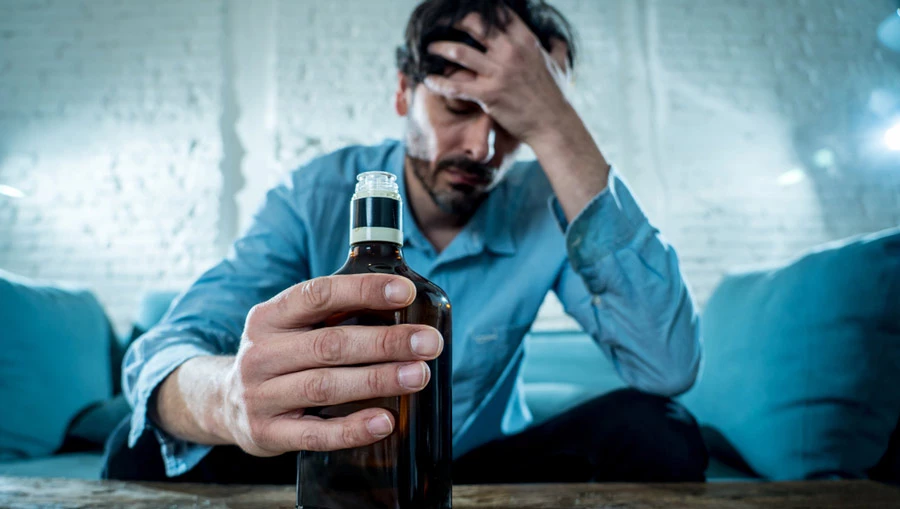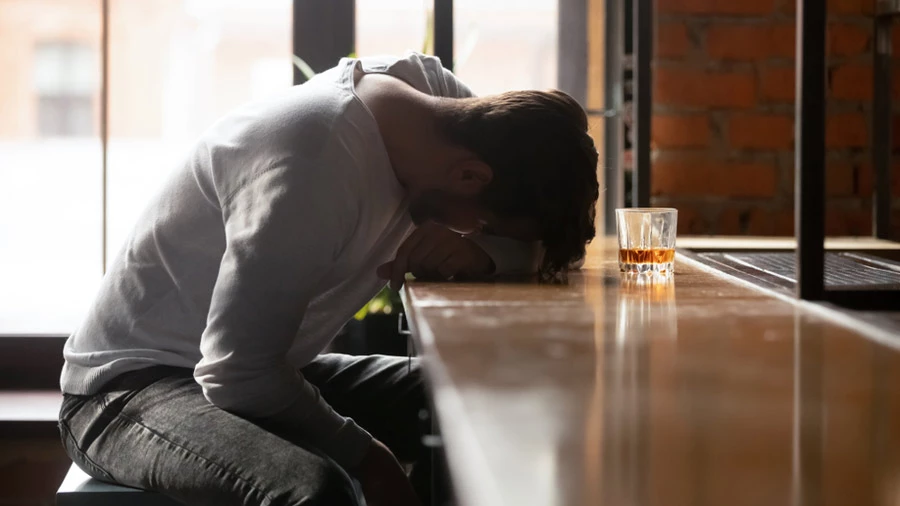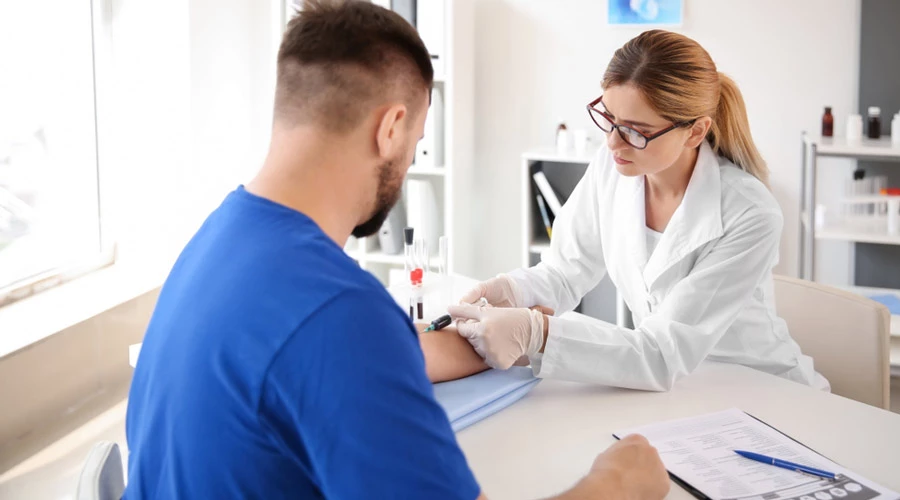A Closer Look at Triggers for Drinking and Relapse
Alcoholism is a severe, often lifelong issue that impacts millions of people worldwide. Chronic conditions like alcoholism are not just a physical dependency on alcohol; it’s also marked by the compulsion to drink despite adverse consequences. Understanding the alcohol triggers – specific environmental or emotional situations that heighten one’s urge to consume alcohol – is critical in managing this condition and paving the path toward recovery.
If you or a loved one are trying to quit drinking, you may already know how difficult it can be to manage cravings and the triggers that bring them on. However, effective support can be found at Catalina Behavioral Health.
Treatment that focuses on identifying these triggers and teaching appropriate coping mechanisms can help individuals maintain sobriety in the long term. It’s a challenging process, but with ongoing support and dedication, overcoming alcoholism is achievable.
Keep reading to learn more about alcohol abuse, how triggers cause an alcohol relapse, and what our expert staff at Catalina can do to help you overcome drinking and find lasting sobriety!
Get 24 Hour Alcohol Detox and Rehab Options
What Exactly Are Triggers?
When it comes to alcohol and drug abuse, triggers refer to specific stimuli–these could be emotions, people, places, or events—that evoke strong urges in individuals to consume alcohol.
A trigger can stir up memories and feelings connected with past drinking experiences and fuel a desire for relapse.
Triggers can be broadly categorized into two types:
Internal Triggers: They originate within the individual and usually correlate with a person’s emotional state.
External Trigger: This includes external factors stemming from the surrounding environment.
4 Common Examples of Internal Triggers To Drinking Alcohol

Internal triggers encompass emotional and physiological situations or states, which can instigate a desire to consume alcohol. Some of the most common triggers that occur internally include the following:
- Negative Emotions: These are typically feelings like sadness, anger, disappointment, or stress. They become triggers as individuals use alcohol as a way to cope with these difficult emotions. Negative emotions can also include symptoms that result from a mental illness. If an individual has previously developed a habit of reaching for alcohol to manage their negative emotional states, the occurrence of these feelings can trigger cravings to drink again.
- Negative Thoughts: These could be self-deprecating thoughts, feelings of inadequacy or worthlessness, shame, or more. Negative thoughts often feed into negative emotions and vice versa, setting up a vicious cycle that can lead to alcohol consumption. An individual might resort to drinking in an attempt to escape these hard-to-manage thought patterns.
- Positive Emotions: This might seem surprising since most would connect alcohol abuse with negative emotional states. However, feelings of happiness or success can be powerful triggers too—mostly because it’s so ingrained in our society to celebrate memorable life events with alcohol.
- Physical Sensations: Certain physical discomforts such as fatigue, pain, or withdrawal symptoms—like shakes or headaches—or even just general poor health can act as triggers. If someone had been accustomed to using alcohol in previous attempts to soothe similar sensations, experiencing these uncomfortable states might again tempt them towards consuming alcohol for temporary relief.
4 Typical Examples of External Triggers That Lead To Alcohol Relapse
Some of the most common external relapse triggers include the following:
- People: This common trigger could include friends or family members with whom the individual used to consume alcohol. More generally, it might also be anyone who brings about stress or negative emotions, thereby indirectly provoking a desire for alcohol.
- Places: Specific locations associated with previous alcohol consumption – such as bars, clubs, or even certain rooms in a person’s home – can serve as potent reminders and triggers. Just being present in these environments might stimulate alcohol cravings.
- Things: Certain items that remind individuals of their drinking habits – such as alcoholic beverage containers, advertisements for drinks, or paraphernalia used while drinking- may stoke the urge to drink again.
- Situations: Certain events or situations can act as triggers, especially when they are likely to involve alcohol like at parties, weddings, or happy hour after a hard day’s work. Additionally, any situation that incites stress – an argument with a loved one, pressure at work, etc.- could trigger an urge to drink.
Understanding these external factors provides crucial insights into which circumstances should be avoided or addressed during your treatment and recovery. It’s not uncommon for many triggers to be subconscious and deeply ingrained due to repetitive habits over extended periods of time. They might pop up unexpectedly and increase the risk that relapse occurs.
In order to effectively manage them, you need a heightened sense of self-awareness. This means paying close attention to your emotions, thoughts, and physical states throughout the day without criticism or judgment rather than simply reacting in auto-pilot mode.
HALT: A Proven Craving and Trigger Strategy

HALT is an acronym used in substance abuse recovery that stands for Hungry, Angry, Lonely, and Tired; four physical or emotional conditions commonly known to lead individuals toward relapse.
When you’re feeling like you may want to reach for a drink, it’s always a good idea to consider if you are experiencing any of these issues.
- Hungry: Being physically hungry can put the body under stress and result in impaired decision-making capacities which might increase the temptation to drink.
- Angry: Anger can cause intense negative emotions and cause someone to then look for a coping strategy like seeking solace through alcohol consumption.
- Lonely: Loneliness often leads people back to harmful substances as they seek comfort or an escape from feelings of isolation.
- Tired: Physical exhaustion or mental fatigue can weaken an individual’s resolve to maintain their sobriety, making it easier to succumb to cravings for alcohol.
The idea behind HALT is that taking care of this basic human is fundamental in preventing relapse. It is an effective way to quickly check in with yourself, recognize your feelings, and address them appropriately. Understanding this trigger helps many people proactively manage these conditions before they lead to severe cravings and potential relapse.
What is Relapse?
Relapse in the context of alcohol addiction recovery refers to a situation where an individual returns to their previous patterns of excessive drinking after a period of abstinence or controlled consumption.
It’s critical to acknowledge that a return to drinking is typically not an instantaneous act, but rather the final stage in a series of emotional and mental changes.
- Emotional Relapse: During this phase, individuals may not consciously think about using alcohol; however, emotional behaviors are setting them up for possible future risks. This includes bottling up emotions or isolating from others who could offer support during trying times.
- Mental Relapse: This stage is marked by ongoing internal conflict. On one hand, there’s a desire to go back to drinking, while on the other hand, there are efforts toward maintaining sobriety. As this stage progresses, thoughts of drinking become more frequent and intense until at times it seems inevitable.
- Physical Relapse: If mental relapses are not healthily addressed and resolved, the individual may enter the physical stage where they do actually start consuming alcohol again.
7 Effective Ways To Prevent Alcohol Relapse

Preventing relapse involves a comprehensive strategy aimed at maintaining both physical and emotional well-being. Here’s what you can do to give yourself the best chance of maintaining your sobriety:
1) Leverage Support
Regularly attending therapy or group sessions is crucial to your recovery process—it helps you gain insights, learn coping strategies, and feel validated, knowing others share similar experiences.
2) Don’t Be Alone at Difficult Times
Manage emotionally challenging times of the year—like holidays or anniversaries—by planning ahead. Avoid spending these periods alone, and engage with supportive folks who know that you might be struggling and can help you get through it.
3) Attend 12-Step Meetings or Other Sober Support Groups
Activities like attending Alcoholics Anonymous (AA) or similar 12-step programs and support groups can provide a supportive community of individuals who understand exactly what you’re dealing with. These gatherings offer an opportunity to share experiences, gain insights from others’ stories, pick up valuable strategies to manage your relapse triggers and maintain sobriety in the long run.
4) Recognize and Avoid Triggers
Make a list of your temptations and relapse question marks; and include all your triggers – external triggers and internal ones – and try to minimize exposure whenever possible, but also learn coping mechanisms for times when confrontation is unavoidable.
Get Immediate Help For Problem Drinking
5) Stay Busy and Productive
Idle time can often lead to negative thoughts or emotional states that could trigger a craving for alcohol. Engaging in productive activities, finding new hobbies, exercising, or volunteering can keep your mind active and focused away from any potential destructive cravings.
6) Make a Gratitude List
Practicing gratitude has been shown to promote overall well-being and resilience during stressful periods. It helps you appreciate what’s going well in the present moment rather than stressing about past mistakes and future concerns.
7) Play the Tape Through
This means considering the full possible consequences of a relapse when facing an urge to drink. If you remember how it negatively affected your life (the aftermath, guilt, regret), and not just the initial soothing effects that alcohol provides, you’re likely to resist temptation better.
Avoiding relapse means taking active steps. Taking these proactive approaches can help you keep your sobriety protected. If you do end up relapsing and need help getting sober again, there is treatment available.
Types of Substance Abuse and Alcohol Addiction Treatment

Substance use and addiction treatments come in many forms, and the best kind for an individual depends on the severity of their addiction, personal needs, and various other factors. Here’s a look at each.
Detox
This is typically the first step in treating substance use. Medically supervised detox programs help to safely wean clients off drugs or alcohol under controlled medical supervision, managing withdrawal symptoms that could otherwise be severe or life-threatening.
Inpatient Treatment
This is a highly structured treatment program in which individuals seeking recovery from substance abuse or addiction live at the rehab facility full-time. The length of stay can vary but generally ranges from 28-90 days, and it may extend longer according to each individual’s recovery progress.
This kind of intensive care allows clients to focus solely on the rehabilitation process without any outside influences or temptations that could potentially disrupt their progress. It ensures physical safety by keeping alcohol and drugs completely out of reach and provides round-the-clock medical and therapeutic supervision.
Inpatient programs offer an array of services including group therapy sessions, individual and family therapy, educational workshops about addiction and recovery, and often complementary therapies as well as yoga, meditation, or art therapy. These facilities also provide medication-assisted treatment (MAT) if needed.
Partial Hospitalization Program (PHP)
PHPs at Catalina are a step down from inpatient care and are often used as a transition stage. Clients receive the same comprehensive clinical treatment offered in an inpatient program but can go back to their homes at night or reside within sober living environments.
Intensive Outpatient Program

This is another step-down and is often attended by people who have completed inpatient and/or PHP. Alternatively, some people will start with intensive outpatient depending on their needs and lifestyle.
Clients engage in substantial therapy sessions throughout the week but are still able to maintain some daily activities like work, school, or family engagements, offering greater flexibility.
Outpatient Addiction Treatment
In an outpatient setting, clients live at home and attend scheduled treatment sessions a couple of times per week. As clients make positive progress, the frequency of these therapeutic interventions becomes less, allowing more time on usual day-to-day tasks and responsibilities while still tracking the recovery journey.
Up to 100% of Costs Covered by Insurance
Reach Out for Help to Overcome Drinking Now
If you or someone you love is dealing with substance abuse and needs addiction and mental health assistance, don’t hesitate to reach out. Our trusted team at Catalina Behavioral Health is devoted to providing compassionate and effective care tailored specifically to each individual’s unique set of challenges.
Seeking help is the first major step towards a healthier life free from the grips of addiction. Contact us today to avoid relapse and ensure you’re on the path to recovery.
All calls to our facility are completely confidential, so please reach out for alcohol support options now!





